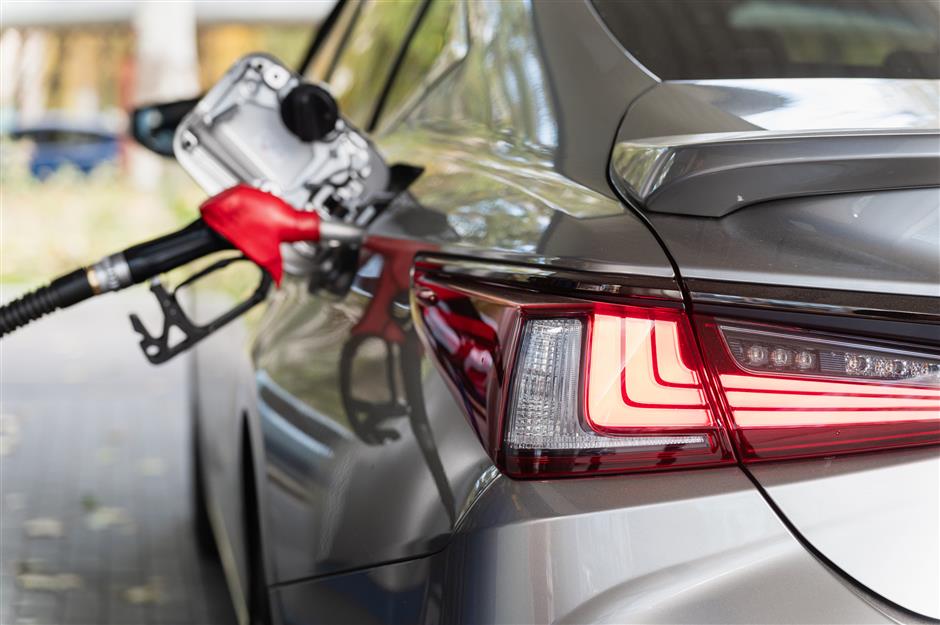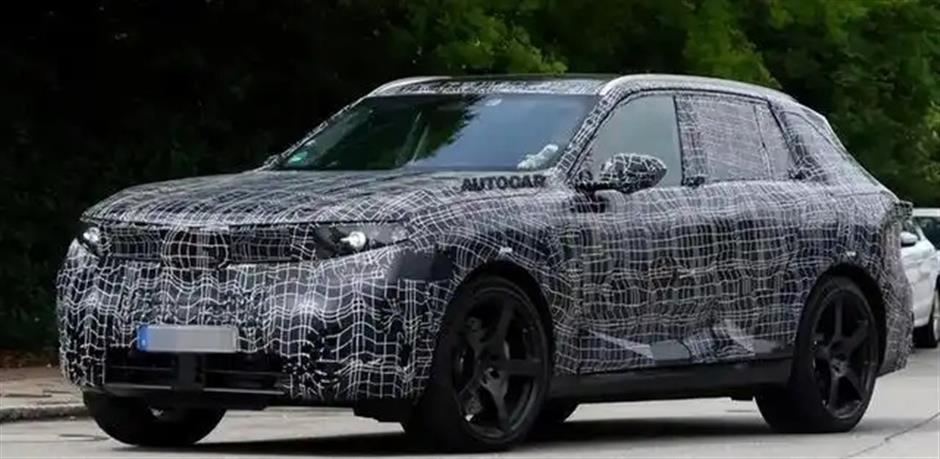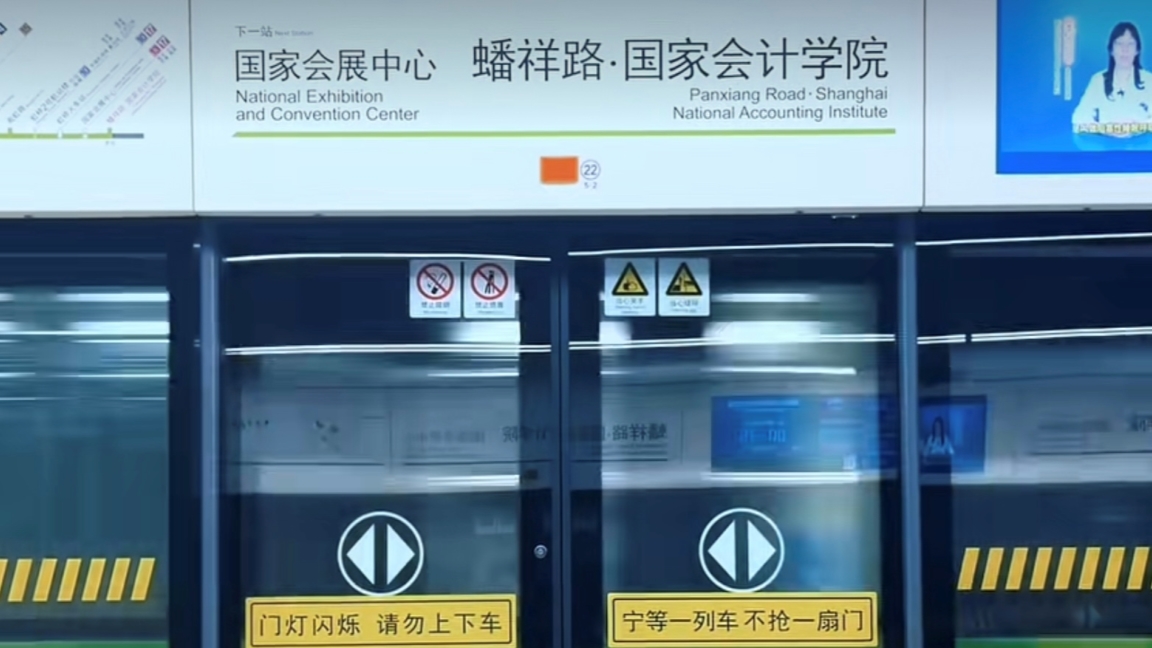Are Gasoline-Powered Cars Dinosaurs? Not for Chinese Consumers
Electric cars have dominated talk in the Chinese auto sector for a long time, but combustion-engine vehicles haven't yet become the industrial dinosaurs many have predicted.
Though China is the world's biggest producer and market for electric cars, data shows that consumers aren't quite ready to abandon fossil fuel vehicles despite their environmental black marks.
The China Association of Automobile Manufacturers reported sales of gasoline-powered cars in the first eight months of this year fell 0.3 from a year early to 8.7 million units, but that was a significant improvement from a 2024 decline of 17.3 percent. In the same period, 9.6 million new-energy cars were sold.
But sales in the NEV market are mixed. Market leader BYD in September logged its first monthly sales decline since February, though smaller rivals Geely, Leapmotor, Xpeng and Xiaomi posted gains.

Liang Zhizi from Shandong Province, who owned an electric car, bought a gasoline-powered car this year.
"You can't say which is good or bad when it comes to electric cars versus fuel-powered ones," he told China Biz Buzz. "They have their respective advantages. But for me, owning a fuel car still makes me feel at ease when it comes to long-distance driving, where it outperforms electric models. Also, charging an electric car still takes longer than stopping at the gas pump."
Sino-foreign joint ventures and domestic independent brands portray two distinct auto market facets.
SAIC-Volkswagen, FAW-Volkswagen and SAIC-GM, which are not dominant in the electric car market, continue to lead in market growth. In the first half of the year, SAIC Volkswagen achieved year-on-year growth of 2.3 percent on 523,000 units sold, with major models like Lavida and Passat both exceeding 100,000 units.
Japanese ventures, however, diverged. GAC-Toyota's July sales totaled 66,000 units, an 11.7 percent increase year-on-year, but Dongfeng Nissan's domestic market share for fuel-powered vehicles continued to shrink, and Honda's growth rate also noticeably lagged Toyota's.
Ultimately, it's a consumer choice.

According to the 2025 China Automotive Performance, Execution and Layout Study released by American data analytics JD Power, vehicle satisfaction with combustion-engine vehicles has risen a significant 14 points to 751 – on a scale of 1,000 points – from 2024.
"It's the biggest increase in five years and shows that internal-combustion engine vehicles still are strongly competitive in the face of surging new-energy vehicles, with an even greater potential for improvement," said Elvis Yang, general manager of auto product practice at JD Power China.
He added, "In particular, the leap in product appeal of domestic combustion brands stands out. With better fuel economy, more attractive designs and prices that are more competitive than comparable NEV models, internal-combustion vehicles continue to offer compelling value to consumers."
One of the major reasons gasoline-powered cars are clawing back market favor is government consumer subsidies. This year, fuel cars enjoy the same "replacing old with new" government subsidies of 15,000 yuan (US$2,057) as electric cars.
Incentive policies for purchasing electric vehicles are also being rolled back. Come January, the tax exemption for new-energy vehicles will be halved, with a tax reduction cap of 15,000 yuan per vehicle. That means, for example, a 200,000-yuan model will require a tax payment of approximately 8,850 yuan; models priced at 300,000 yuan or more will be taxed at 10 percent, which is then offset by the 15,000-yuan cap.
Safety risks associated with electric cars also play into consumer choices.
Last week, a collision in the southwestern city of Chengdu involving a Xiaomi SU7 led to a fire that killed the driver, only a half year after a similar accident involving the same model killing three in Anhui Province. In both accidents, computer-controlled car doors wouldn't open to allow rescuers to reach those inside.
"Such accidents are less probable with fuel-powered cars because their door mechanisms are mostly mechanical and a cut to car power doesn't affect them," said car buyer Liang. "Although China has set new standards on green-vehicle door handles, it takes time to see a difference."
In the used car market, gasoline-powered vehicles are outperforming electric cars and hybrids.
Shanghai-based Aoshi Technology, whose business includes vehicle sales, gave China Biz Buzz an example. A Toyota that sells initially for about 100,000 yuan may still fetch between 20,000 yuan and 30,000 yuan in the secondhand market after 10 years, but a Nio electric car costing 450,000 yuan may depreciate by a third of its value in two or three years.
"NEVs are still rather new, with rapidly updated technologies," said Miu Yiping, general manager of Aoshi. "We may wait for 10 years or longer to see how they develop. So now, owners who want less depreciation of their vehicles may still choose fuel-powered cars."
Is resurgent consumer interest in gasoline-powered vehicles a serious trend or just a fleeting blip?
The answer may depend on technology upgrades to the internal-combustion engine. Industry experts revealed at an automotive forum last month that the effective thermal efficiency of internal-combustion engines is expected to reach 45-47 this year, with a potential breakthrough to over 50 percent by 2030. When combined with carbon-neutral fuels such as methanol and hydrogen, these developments could significantly reduce harmful auto emissions.
"Makers of traditional internal-combustion engine vehicles must improve their smart technology," said JD Power's Yang. "A vibrant market relies on diverse competition, and innovation thrives in such an environment."


In Case You Missed It...
![[See & Be Seen] Check Out the Belgian Beer Fest Happening NOW](https://obj.shine.cn/files/2025/10/25/112ac044-9469-432d-a275-691278096991_0.jpg)






